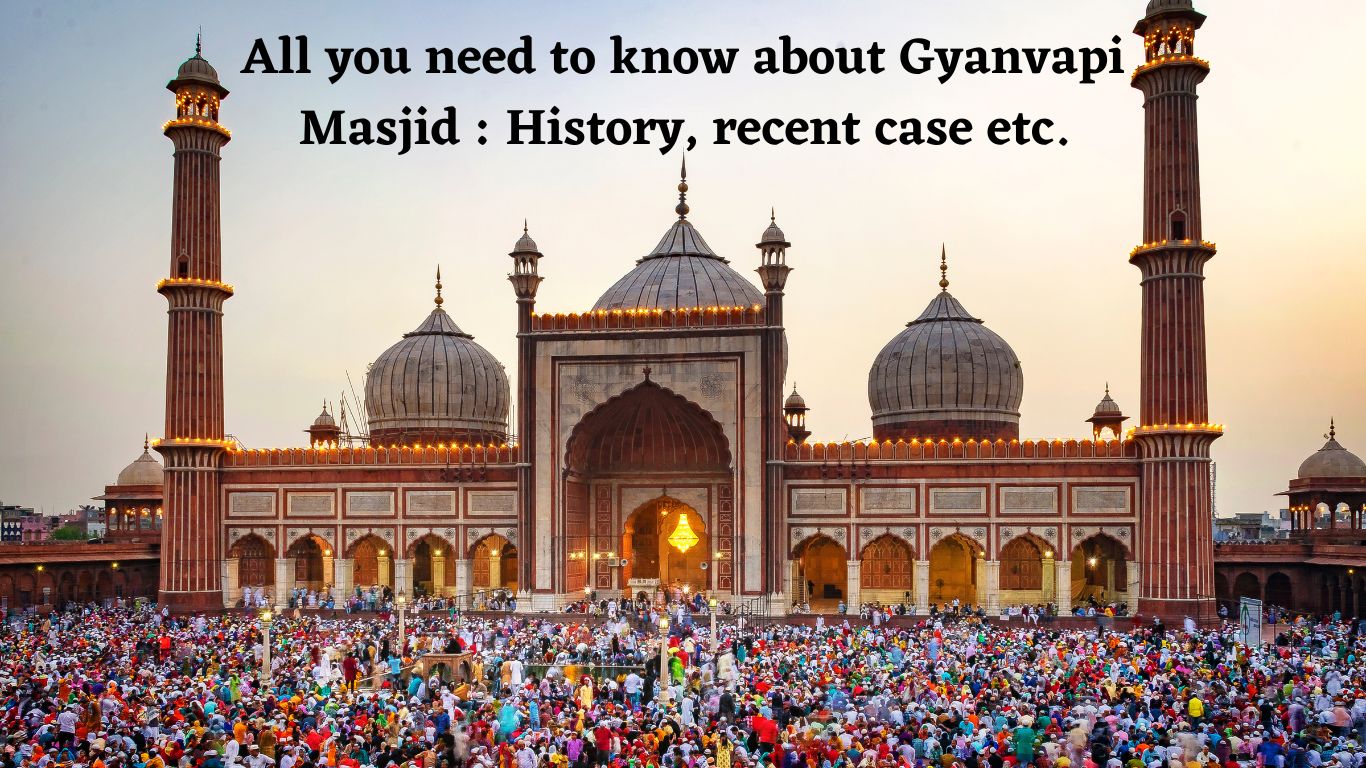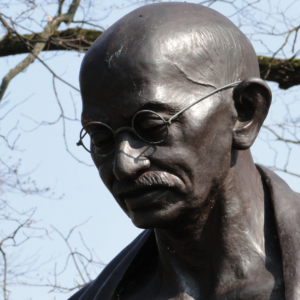
Gyanvapi Masjid:
It was built by Mughal emperor Aurangzeb in 1664 after demolishing the original Hindu Kashi Vishwanath temple. It is located in north of the Dashaswamedh Ghat and close to the Lalita Ghat. It is therefore located in the heart of the ancient city of Varanasi.
The mosque owned the named called Gyanvapi (The source of knowledge) which is located between the current Vishwanath temple and Gyanvapi mosque itself. Hindus believe that the temple’s Linga, the holy icon of Shiva, was located in this fountain of knowledge before the temple was raised by Aurangzeb. The temple had been destroyed and rebuilt several times before that. The temple structure that existed before the construction of the mosque was probably built by Raja Man Singh during the reign of Akbar.
History:
The Gyanvapi Masjid is partially inspired by the entrance to the Taj Mahal. The minarets have a height of 71 metres. One of these minarets collapsed during the floods in the city in 1948. One of the remains of the old temple, the foundations, columns and something at the back of the mosque can still be seen.
Aurangzeb’s demolition of the temple was prompted by the escape of the Maratha King Shivaji, as well as the rebellion of local aristocratic landlords, known as Zamindars. The demolition of the temple was done as a warning to all those anti-Mughals and Hindu religious leaders in the city. Many years later, the Maratha ruler Malhar Rao Holkar (1693-1766) wanted to demolish the mosque and rebuilt the Vishweshwar Temple on the same spot. However, he never did. In the year 1780, his daughter-in-law Ahilyabai Holkar built the current Kashi Vishwanath temple next to the mosque.
In the 1990s the Vishwa Hindu Parishad Organization, whose main goal is to consolidate Hindu society, campaigned to reclaim all those places where mosques were built after demolishing Hindu temples. After the demolition of the Babri Mosque in Ayodhya in December 1992, about a thousand policeman were transferred to Varanasi to prevent a similar incident at the Gyanvapi Mosque.
The Leaders of the Bharatiya Janata Party, which supported the demand for the recovery of the Babri Mosque in Ayodhya, opposed in this case the similar demands of the Vishwa Hindu Parishad organization considering that the Gyanvapi Mosque was currently used. Today this mosque receives protection under a 1991 special act regarding place of worship.
Gyanvapi, Justice admits Hindu claims on the Mosque:
In Uttar Pradesh, a judge has rejected the request of a committee representing Muslims. The verdict was received with songs and dances by the group that started the dispute. It is feared that the confrontation could turn into a new Ayodhya and give rise to confessional violence.
First victory in the courts of Hindus over Muslims in the controversy that erupted around the Gyanvapi Mosque, which risks becoming a new Ayodhya, the scene of a wave of confessional violence 30 years ago which culminated in a massacre. The district court of Varanasi, Uttar Pradesh, rejected the injuction filed by the Anjuman Intezmia Committee (representing muslims) ro challenge the request to hold celebrations related to Hindu dieties inside the Islamic place of worship.
The Hindu received the news with songs and dances. Shortly after the verdict was announced, Manju Vyas, one of the five women who started the dispute shouted in the courtroom: “Bharat is happy and my Hindu brothers and sisters should light candles and pray to celebrate.
The Monocratic Judge AK ruled that the filed appeal is admissible, rejecting the claims of the Muslim counterpart represented by their committee, which announced an appeal to Allahbad High Court. The clash over the centuries-old Gyanvapi Mosque in Varanasi, one of the holiest cities in Hindu tradition, has been going on for months, fueling new tensions between India’s two largest religious communities. Hindu group says the mosque, located in Prime Minister Narendra Modi’s constituency, was built on the ruins of a Hindu temple, the demolition of which was ordered by Muslim rulers in the 17th century.
To fuel the demands, a small group of five Hindus women asked to perform rituals related to their faith in a part of the mosque. The court then decided in May of this year to carry out some filming of the complex and to open an investigation to evaluate the claims of the respective fronts. Hindus claim that when the video was being recorded in the mosque, a representation of Shiva appeared, a claim that Muslims refute







